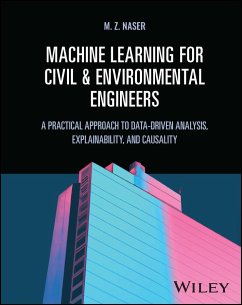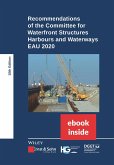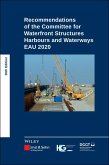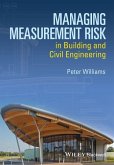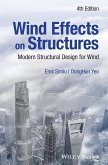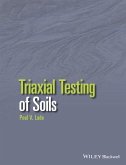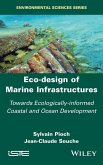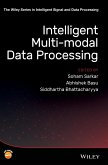Accessible and practical framework for machine learning applications and solutions for civil and environmental engineers
This textbook introduces engineers and engineering students to the applications of artificial intelligence (AI), machine learning (ML), and machine intelligence (MI) in relation to civil and environmental engineering projects and problems, presenting state-of-the-art methodologies and techniques to develop and implement algorithms in the engineering domain.
Through real-world projects like analysis and design of structural members, optimizing concrete mixtures for site applications, examining concrete cracking via computer vision, evaluating the response of bridges to hazards, and predicating water quality and energy expenditure in buildings, this textbook offers readers in-depth case studies with solved problems that are commonly faced by civil and environmental engineers.
The approaches presented range from simplified to advanced methods, incorporating coding-based and coding-free techniques. Professional engineers and engineering students will find value in the step-by-step examples that are accompanied by sample databases and codes for readers to practice with.
Written by a highly qualified professional with significant experience in the field, Machine Learning includes valuable information on:
_ The current state of machine learning and causality in civil and environmental engineering as viewed through a scientometrics analysis, plus a historical perspective
_ Supervised vs. unsupervised learning for regression, classification, and clustering problems
_ Explainable and causal methods for practical engineering problems
_ Database development, outlining how an engineer can effectively collect and verify appropriate data to be used in machine intelligence analysis
_ A framework for machine learning adoption and application, covering key questions commonly faced by practitioners
This textbook is a must-have reference for undergraduate/graduate students to learn concepts on the use of machine learning, for scientists/researchers to learn how to integrate machine learning into civil and environmental engineering, and for design/engineering professionals as a reference guide for undertaking MI design, simulation, and optimization for infrastructure.
Hinweis: Dieser Artikel kann nur an eine deutsche Lieferadresse ausgeliefert werden.
This textbook introduces engineers and engineering students to the applications of artificial intelligence (AI), machine learning (ML), and machine intelligence (MI) in relation to civil and environmental engineering projects and problems, presenting state-of-the-art methodologies and techniques to develop and implement algorithms in the engineering domain.
Through real-world projects like analysis and design of structural members, optimizing concrete mixtures for site applications, examining concrete cracking via computer vision, evaluating the response of bridges to hazards, and predicating water quality and energy expenditure in buildings, this textbook offers readers in-depth case studies with solved problems that are commonly faced by civil and environmental engineers.
The approaches presented range from simplified to advanced methods, incorporating coding-based and coding-free techniques. Professional engineers and engineering students will find value in the step-by-step examples that are accompanied by sample databases and codes for readers to practice with.
Written by a highly qualified professional with significant experience in the field, Machine Learning includes valuable information on:
_ The current state of machine learning and causality in civil and environmental engineering as viewed through a scientometrics analysis, plus a historical perspective
_ Supervised vs. unsupervised learning for regression, classification, and clustering problems
_ Explainable and causal methods for practical engineering problems
_ Database development, outlining how an engineer can effectively collect and verify appropriate data to be used in machine intelligence analysis
_ A framework for machine learning adoption and application, covering key questions commonly faced by practitioners
This textbook is a must-have reference for undergraduate/graduate students to learn concepts on the use of machine learning, for scientists/researchers to learn how to integrate machine learning into civil and environmental engineering, and for design/engineering professionals as a reference guide for undertaking MI design, simulation, and optimization for infrastructure.
Hinweis: Dieser Artikel kann nur an eine deutsche Lieferadresse ausgeliefert werden.

